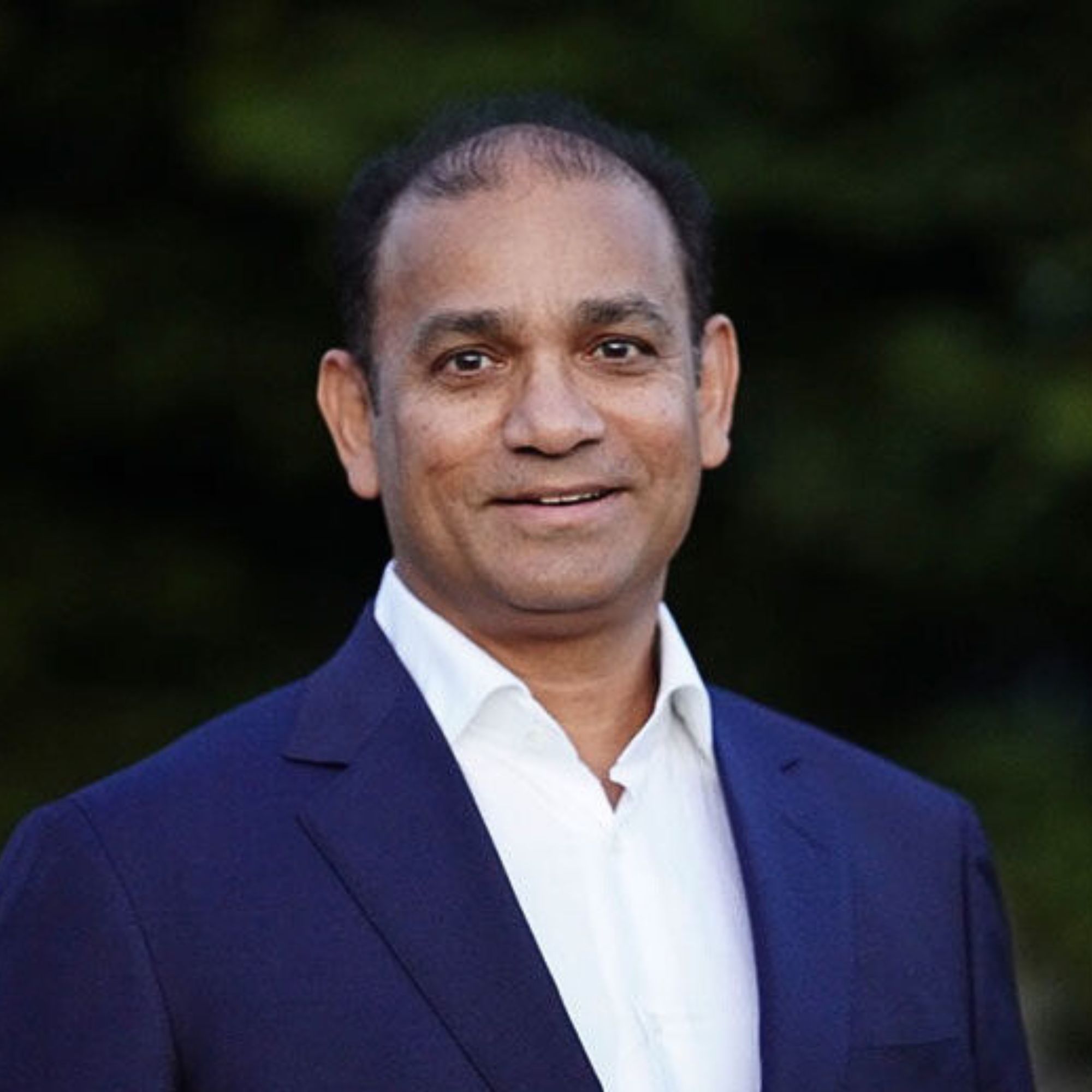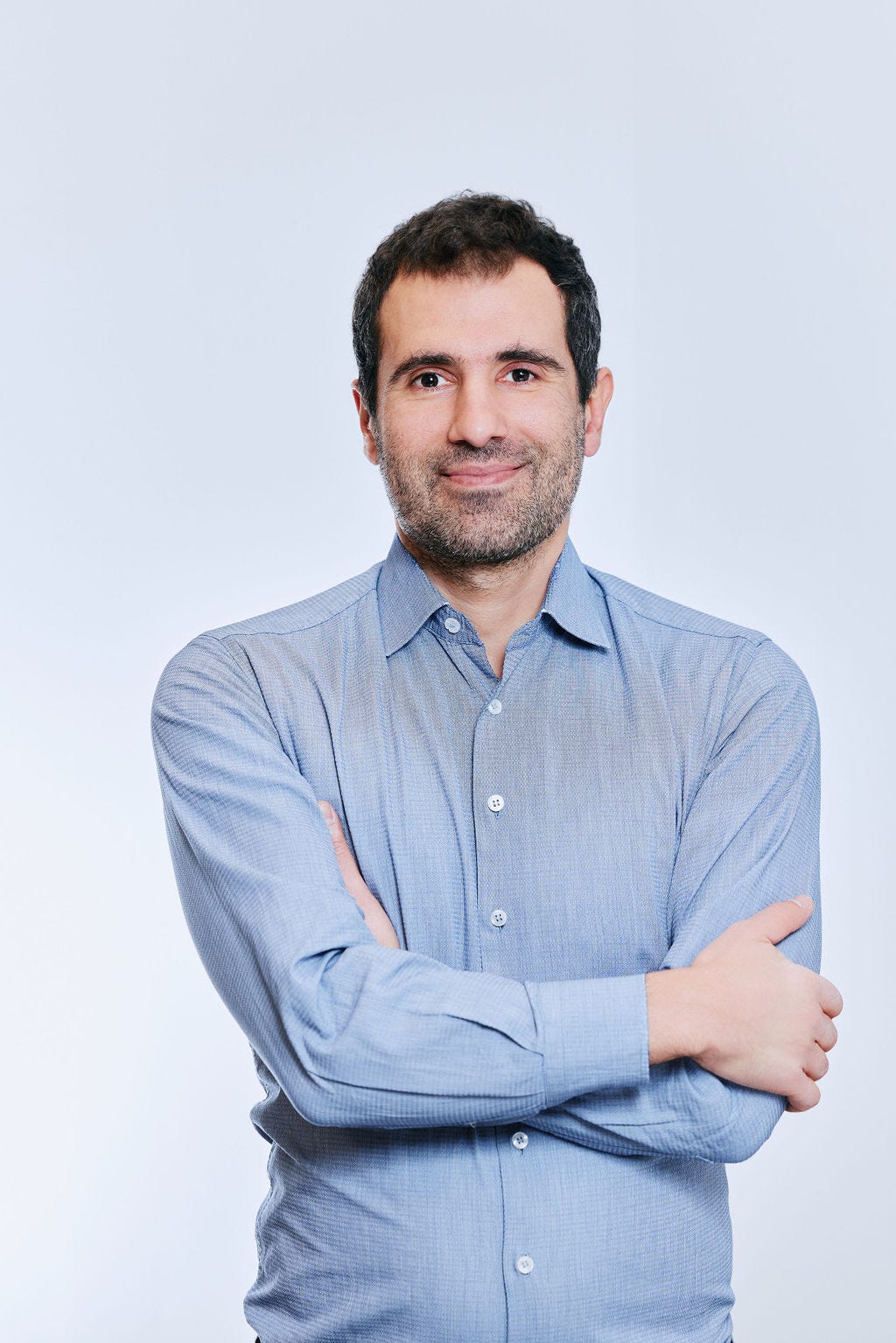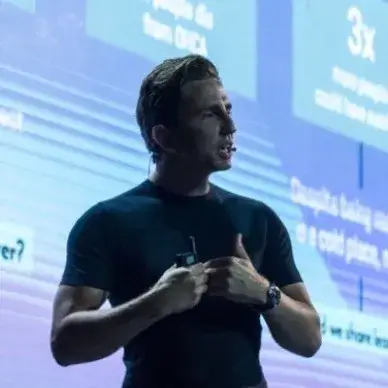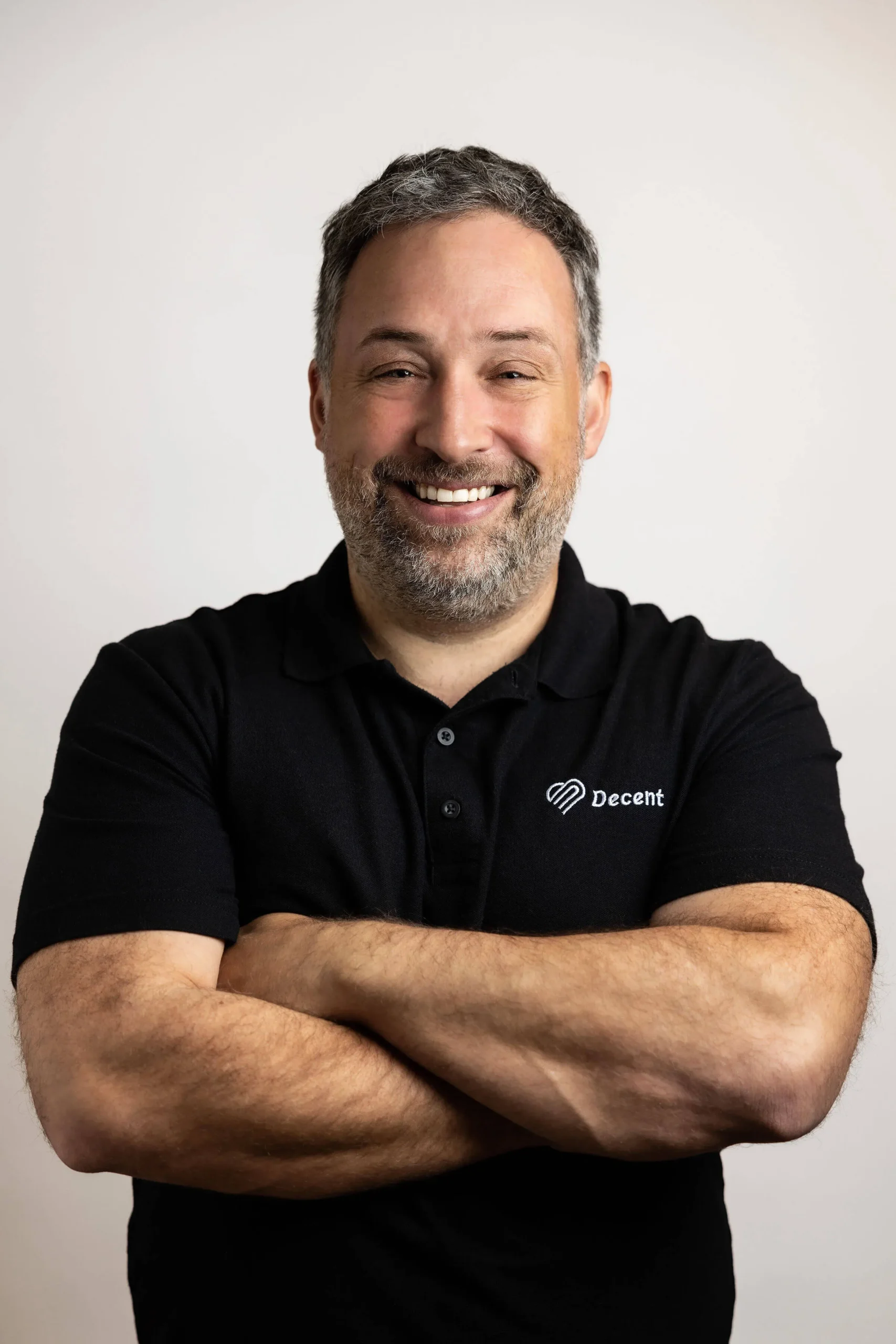Ready to launch your own podcast? Book a strategy call.
Frontlines.io | Where B2B Founders Talk GTM.
Strategic Communications Advisory For Visionary Founders
Conversation
Highlights
From Healthcare Operations to Tech Founder: How DignifiHealth is Redefining Rural Healthcare Success
Healthcare founders typically come in two flavors: technologists who spot a market opportunity, or industry veterans who’ve lived the problems. Richard Queen falls firmly in the latter camp, and his approach to building DignifiHealth offers a masterclass in leveraging deep domain expertise for go-to-market success.
While serving as CFO of a multi-specialty medical group, Richard encountered a critical problem with value-based care contracts. His team was flying blind: “We had no ability to forecast cost, no ability to forecast utilization, no ability to know what patients needed higher levels of engagement.” The stakes were high – these contracts promised shared savings with insurance companies if they could improve patient outcomes and lower costs.
Rather than accepting this limitation, Richard built a prototype that revealed previously invisible insights. The impact was immediate and, surprisingly, drew praise from an unexpected quarter: “We started getting compliments from our payers, which, if you work within the healthcare industry, you know how almost comical that sounds.”
This early validation sparked a methodical journey from internal tool to market-ready product. Rather than immediately launching a company, Richard tested his solution across different health systems and electronic medical records. “Made many mistakes. Fail forward as is so often said,” he recalls, highlighting how this experimental phase shaped DignifiHealth’s eventual go-to-market strategy.
Their approach to product development reflects a deep understanding of their users’ reality. Healthcare staff are “some of the busiest people in a health system,” constantly juggling patient calls, in-person interactions, and administrative tasks. This insight led to a crucial product principle: sophistication in the background, simplicity in the foreground.
“We have an incredible amount of sophistication of machine learning and rules engines,” Richard explains, “but we keep that sophistication in the background. And what we deliver to the front end users is very simplistic by design.” This approach solves a common problem in healthcare tech – systems that are too complex for clinical experts who aren’t meant to be IT experts.
DignifiHealth’s land-and-expand strategy emerged from this same understanding. Instead of overwhelming clients with their full platform, they start with “just a few key actions.” This focused approach generates quick wins and ROI, naturally leading to platform expansion. The results speak for themselves: “100% of our clients have started with some part of our platform and have then further contracted with us for other parts.”
Their positioning as rural healthcare specialists wasn’t just a market opportunity – it’s authentic to their experience. “I myself live in Kentucky and participate and partake of healthcare in the Appalachian rural region,” Richard notes. This authenticity helps them connect with clients on a deeper level: “We get to share those same war stories, which allows us to connect first on a personal level, understanding the unique challenges that each other is facing.”
The metrics validate this approach. One health system generated over $500,000 in direct revenue through an automated data feed, while another saw an 84% increase in chronic care management enrollments within 90 days. More impressively, they’ve increased point-of-care gap closure from 8-8.5% to 40-50% within six months of implementation.
For founders, DignifiHealth’s journey offers valuable lessons about leveraging domain expertise in go-to-market strategy. Their success stems not just from solving a problem, but from deeply understanding the operational context in which that solution must work. As Richard puts it, success isn’t the goal – it’s “the byproduct of small acts of daily discipline that are done repeatedly.”
Actionable
Takeaways
Prototype as a Proof of Concept:
Richard's success in raising funds well beyond the initial goal highlights the power of a working prototype to demonstrate value and potential to investors. For B2B tech founders, developing a tangible, functional prototype can significantly boost investor confidence and support, especially when the prototype addresses clear, existing pain points in your industry.
Focus on Domain Expertise:
Dignify Health’s foundation on Richard's extensive experience within healthcare operations underscores the importance of leveraging deep industry knowledge. B2B founders should immerse themselves in their chosen fields or ensure their team has core members with this expertise, as it lends authenticity and precision to the solutions developed, making them more attractive to both clients and investors.
Solving Real Problems:
The genesis of Dignify Health was in solving a specific, critical problem that Richard encountered in his professional life – the inefficiency and challenges of value-based healthcare. For founders, identifying and focusing on real, significant problems faced by your target market, rather than theoretical or peripheral issues, can guide your product development towards offering genuinely valuable solutions.
Land and Expand Strategy:
Starting with a simple yet critical aspect of your platform can be a key strategy for early adoption, as demonstrated by Dignify Health. Founders should consider launching with a core feature set that delivers immediate value, then expand the offering based on user feedback and observed needs, ensuring both initial traction and sustained growth.
Mission-driven Approach in a Niche Market:
Richard’s focus on improving healthcare outcomes in rural areas through Dignify Health exemplifies the impact of a mission-driven approach, especially in niche markets. Founders should consider how their products or services can meet the needs of underserved or specific segments, as this focus can drive innovation, customer loyalty, and potentially untapped market opportunities.
Recommended Founder
Interviews


Derek Streat
Co-Founder & Chief Executive Officer of Dexcare
Derek Streat, CEO of Dexcare: $110 Million Raised to Help Health Systems to Find Time for the Best Care


Todd Zion
Founder of Akston Biosciences
Todd Zion, Founder of Akston Biosciences: From a $500M Exit to Pioneering Biotech Innovation in Pet Health

Amar Kendale
President and Co-Founder of Homeward
Amar Kendale, President & Co-Founder of Homeward: $70 Million Raised to Transform Rural Healthcare Through Technology

Veer Gidwaney
CEO & Founder of Ansel Health
Veer Gidwaney, CEO & Founder of Ansel Health: $50 Million Raised to Transform Supplemental Health Insurance


Mahesh Veerina
CEO of ParkourSC
Mahesh Veerina, CEO of ParkourSC: $90 Million Raised to Pioneer Dynamic Decision Intelligence for Supply Chain Networks


Joseph Schneier
CEO of Trusty Care
Joseph Schneier, CEO of Trusty Care: $13+ Million Raised to Shape the Future of Medicare


Kristen Valdes
CEO & Founder of B.well
Kristen Valdes, CEO & Founder of B.well: $100 Million Raised to Reimagine the Healthcare Experience

Austin McChord
CEO of Casana
Austin McChord, CEO of Casana: Over $46 Million Raised to Create the Future of In-Home Health Monitoring


Senan Ebrahim
CEO & Founder of Delfina
Senan Ebrahim, CEO & Founder of Delfina: $10 Million Raised to Build the Future of Intelligent Pregnancy Care


Elad Ferber
CEO & Co-Founder of Synthpop
Elad Ferber, CEO & Co-Founder of Synthpop: $8 Million Raised to Build the Future of Healthcare Administration with AI


Kourosh Davarpanah
Co-Founder and CEO of Inato
Kourosh Davarpanah, Co-Founder and CEO of Inato: Over $35 Million Raised to Build the Future of Clinical Trials


Matt Renfro
Co-Founder & CEO of Lynx
Matt Renfro, CEO of Lynx: $17.5 Million raised to Bring Modern Fintech to Healthcare


Henry O’Connell
CEO & Founder of Canary Speech
Henry O’Connell, CEO & Founder of Canary Speech: $26 Million Raised to Build the Future of Vocal Biomarker Technology


Itzik Cohen
Co-Founder and CEO of PayZen
Itzik Cohen, Co-Founder and CEO of PayZen: $240 Million Raised to Build the Future of Affordable Health Care

Dipanwita Das
CEO and Co-Founder of Sorcero
Dipanwita Das, CEO and Co-Founder of Sorcero: Over $20 Million Raised to Power Medical Affairs Teams of the Future


Daniel West
CEO of Prospection
Daniel West, CEO of Prospection: $36 Million Raised to Build the Future of Patient-Centric Intelligence


Verena Gerhardus
Director of Growth of Nelly Solutions
How Nelly Grew 3X Through Meta Ads in Health Tech


Michael Chang
Mastering Market Fit in AI: Insights from Michael Chang, Director of Marketing at ArteraAI


Michael Gorton
Founder of Teladoc
Teladoc Founder Michael Gorton on the Early Days of Pioneering the Telemedicine Category (And What’s He’s Up to Next)


Ignacio Medrano
Founder & CMO of Savana
Ignacio Medrano, Founder & CMO of Savana: $44M Raised to Transform Healthcare Intelligence Through AI


Joshua Miller
CEO and Co-Founder of Gradient Health
Joshua Miller, CEO & Co-Founder of Gradient Health: $5.7 Million Raised to Build the Future of Medical Imaging

Torben Nielsen
CEO & Co-Founder of Uptiv Health
Torben Nielsen, CEO of Uptiv Health: $7.5M Raised to Build the Future of Infusion Therapy Through Technology-Enabled Retail Centers

Kevin Flyangolts
CEO and Founder of Aclid
Kevin Flyangolts, CEO & Founder of Aclid: $4 Million Raised to Build the Future of Biosecurity


Cesar Herrera
CEO and Co-Founder of Yuvo Health
Cesar Herrera, CEO and Co-Founder of Yuvo Health: $28 Million Raised to Revolutionize Healthcare Access


Ty Allen
CEO of SocialClimb
Ty Allen, CEO of SocialClimb: $12 Million Raised to Power the Future of Healthcare Marketing


Dimitrios Skaltsas
CEO & Co-Founder of Intelligencia AI
Dimitrios Skaltsas, CEO & Co-Founder of Intelligencia AI: $15.5 Million Raised to Build the Future of Drug Development


David King Lassman
Founder of GigXR
David King Lassman, Founder of GigXR: $7 Million Raised to Bring Immersive Learning to Healthcare


Vicky Demas
CEO of Identifeye Health
Vicky Demas, CEO of identifeye HEALTH: $90 Million Raised to Power the Future of Retinal Imaging


Daniel Lambert
CEO of PathologyWatch
Daniel Lambert, CEO of PathologyWatch: Over $50 Million Raised to Build the Future of Digital Pathology


Khaled Boukadoum
Founder of Torch Dental
Khaled Boukadoum, Founder of Torch Dental: $49.5 Million Raised to Transform Dental Supply Management Through Digital Innovation


Aasim Saeed
CEO and Founder of Amenities Health
Aasim Saeed, CEO and Founder of Amenities Health: $10 Million Raised to Build the Future of Patient Engagement


Rishi Nayyar
CEO and Co-Founder of PocketHealth
Rishi Nayyar, CEO and Co-Founder of PocketHealth: $22.5 Million Raised to Power the Future of Medical Image Sharing


Thomas Knox
CEO & Founder of VitVio
Thomas Knox, CEO & Founder of VitVio: $10 Million Raised to Transform Surgical Operations Through AI-Powered Automation


David Berry
CEO and Founder of Valo
David Berry, CEO and Founder of Valo: Over $500 Million Raised to Build the Future of Drug Discovery

Dr Thomas Oakley
CEO of Feedback PLC
Dr Thomas Oakley, CEO of Feedback PLC: £20 Million Raised to Build the Future of Patient Data Sharing


Dr. Nan-Wei Gong
CEO and Founder of FIGUR8
Dr. Nan-Wei Gong, CEO & Founder of FIGUR8: $40 Million Raised to Build the Future of Musculoskeletal Health and Injury Data Solutions


Kyle Kiser
CEO of Arrive Health
Kyle Kiser, CEO of Arrive Health: Over $40 Million Raised to Improve the Value of Healthcare Through Informed Decision-Making


Amy Brown
CEO and Founder of Authenticx
Amy Brown, CEO and Founder of Authenticx: $28 Million Raised to Build the Future of Listening AI

Ben Albert
CEO & Co-Founder of Upfront Healthcare
Ben Albert, CEO & Co-Founder of Upfront Healthcare: $30 Million Raised to Power the Future of Patient Engagement

Trey Sutten
CEO & Co-Founder of Siftwell Analytics
Trey Sutten, CEO & Co-Founder of Siftwell Analytics: $5 Million Raised to Transform Healthcare Analytics with AI-Powered Predictions


Danny Freed
CEO & Founder of Blueprint
Danny Freed, CEO & Founder of Blueprint: $13.7 Million Raised to Build the Future of Therapist Enablement


Joe Gagnon
CEO of 1upHealth
Joe Gagnon, CEO at 1upHealth: Over $75 Million Raised to Build the Future of Healthcare Data


Andreas Cleve
CEO and Co-Founder of Corti
Andreas Cleve, CEO and Co-Founder of Corti: $32 Million Raised to Power the Future of Patient Consultations


Armon Sharei
CEO & Founder of Portal
Armon Sharei, CEO & Founder of Portal: $5 Million Raised to Power the Future of Cell Engineering

Justin Dearborn
Founder & CEO of Praia Health
Justin Dearborn, Founder & CEO of Praia Health: $20 Million Raised to Build the Future of Consumer Experience in Healthcare


Brock Leonti
CEO & Co-Founder of Prescribe FIT
Brock Leonti, CEO & Co-Founder of Prescribe FIT: $15 Million Raised to Build the Future of Orthopedic Care


Dilpreet Sahota
CEO of Trek Health
Dilpreet Sahota, CEO of Trek Health: $3 Million Raised to Help Mental Health Providers Accept Insurance


Mark Lehmkuhle
CEO & Founder of Epitel
Mark Lehmkuhle, CEO & Founder of Epitel: $20 Million Raised to Build the Future of Brain Health Monitoring


Hala Borno
Founder and CEO of Trial Library
Hala Borno, Founder and CEO of Trial Library: $5M Raised to Improve Patient Recruitment and Diversity in Oncology Clinical Trials


Alex Zekoff
CEO and Co-Founder of Thoughtful AI
Alex Zekoff, CEO and Co-Founder of Thoughtful AI: $21 Million Raised to Power the Future of Healthcare Automation


Brett Kleger
CEO of Datacubed Health
Brett Kleger, CEO of Datacubed Health: $43 Million Raised to Revolutionize Clinical Trial Data Collection


Viral Patel
Founder and CEO of Radish Health
Viral Patel, CEO of Radish Health: $5 Million Raised to Connect Employees with a Better Healthcare Experience


Rafid Fadul
CEO and Co-Founder of Zivian Health
Rafid Fadul, CEO and Co-Founder of Zivian Health: $3 Million Raised to Power the Future of Compliant Healthcare Collaborations

Nick Soman
CEO & Founder of Decent
Nick Soman, CEO & Founder of Decent: $43 Million Raised to Build the Future of Direct Primary Care


Matthew Stoudt
CEO and Founder of AppliedVR
Matthew Stoudt, CEO and Founder of AppliedVR: Over $70 Million Raised to Build the Future of Chronic Pain Relief


Stacy Edgar
CEO and Co-Founder of Venteur
Stacy Edgar, CEO & Co-Founder of Venteur: $7.6 Million Raised to Build the Future of Health Insurance


Samson Magid
Co-Founder and CEO of HealthSnap
Samson Magid, Co-Founder and CEO of HealthSnap: Over $12 Million Raised to Build the Future of Remote Patient Monitoring

Brad Kittredge
CEO & Co-Founder of Brightside
Brad Kittredge, CEO & Co-Founder of Brightside: $150 Million Raised to Build the Future of Mental Healthcare


Trenor Williams
CEO and Co-Founder of Socially Determined
Trenor Williams, CEO and Co-Founder of Socially Determined: $34 Million Raised to Build the Social Risk Intelligence Category


Alfred Griffin
CEO and Co-Founder of CEO and Co-Founder
Alfred Griffin, CEO and Co-Founder of LightForce: $150 Million Raised to Power the Future of Orthodontics

James Bates
CEO and Founder of AdviNOW Medical
James Bates, CEO and Founder of AdviNOW Medical: $24 Million Raised to Build the Future of AI-Powered Healthcare

